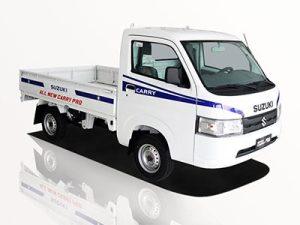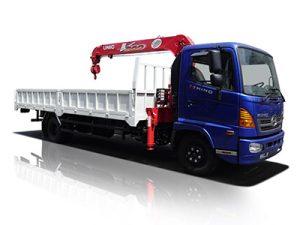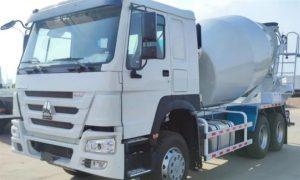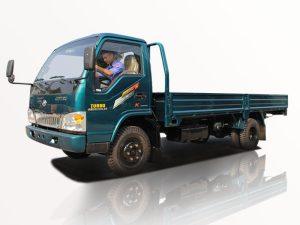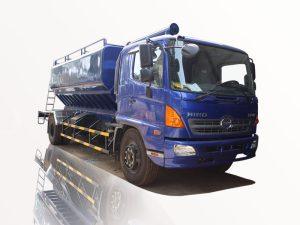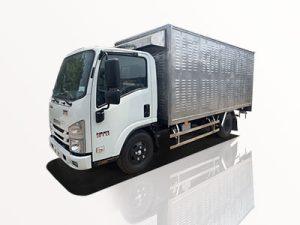Monday to Saturday - 8:00 -17:30
Understanding Garbage Recycling Trucks: The Backbone of Waste Management
In the modern world, proper waste management is crucial for maintaining clean environments and ensuring sustainability. Garbage recycling trucks play a key role in this process. This article delves into the intricacies of garbage recycling trucks, examining their design, functionality, and importance in waste management. We will explore the technologies used, practical examples, and tips for efficient waste management. Let’s embark on this informative journey!
The Importance of Garbage Recycling Trucks
Garbage recycling trucks are specialized vehicles that help in collecting and transporting recyclable materials. They are essential for reducing the volume of waste sent to landfills and promoting recycling practices. By optimizing waste collection, recycling trucks contribute significantly to environmental preservation.
1. How Garbage Recycling Trucks Work
Garbage recycling trucks are designed to efficiently collect, compact, and transport recyclable materials. Here’s a breakdown of their operational process:
1.1 Collection
Trucks equipped with automated arms or manual loading systems pick up recyclables from designated bins. This ensures routine collection intervals, contributing to cleaner neighborhoods.
1.2 Compaction
Once materials are loaded onto the truck, they undergo compaction. This process reduces the volume of recyclables, allowing more materials to be transported per trip.
1.3 Transportation
The compacted recyclables are then transported to recycling facilities, where they are sorted and processed into reusable materials.
2. Types of Garbage Recycling Trucks
Different types of garbage recycling trucks cater to various needs in waste management.
2.1 Rear-Loader Trucks
These trucks have an opening at the back that allows for loading materials easily. They are often used in residential areas with curbside pickup.
2.2 Front-Loader Trucks
Front-loaders are designed for collecting waste from larger bins, commonly seen in commercial settings and larger apartment complexes.
2.3 Side-Loader Trucks
These trucks load materials from the side, often utilizing automated systems, and provide flexibility for tight spaces.
2.4 Multi-Compartment Trucks
Multi-compartment trucks can separate different recyclable materials during transportation, enhancing recycling efficiency.
3. Technologies in Garbage Recycling Trucks
With advancements in technology, garbage recycling trucks have seen significant innovations that enhance their operations.
3.1 GPS Tracking
GPS technology optimizes route planning, ensuring efficient collection schedules and reduced fuel consumption.
3.2 Load Sensors
Load sensors help monitor the amount of collected recyclables, allowing for better management of collection routes.
3.3 Automated Compaction Systems
Automated systems enhance efficiency in compaction, allowing for heavier loads and fewer trips to recycling facilities.
4. The Role of Garbage Recycling Trucks in Sustainability
These trucks are crucial in promoting sustainable practices by:
4.1 Reducing Landfill Waste
By collecting recyclables, recycling trucks significantly decrease the volume of waste that ends up in landfills.
4.2 Promoting Recycling Practices
Regular collection of recyclables encourages individuals and businesses to dispose of waste responsibly, fostering a culture of recycling.
4.3 Conserving Resources
Recycling reduces the need for new raw materials, conserving natural resources and reducing energy consumption.
5. Best Practices for Effective Recycling
To maximize recycling efforts, consider the following best practices:
5.1 Educating the Community
Informing residents about what materials are recyclable can improve participation in recycling programs.
5.2 Regular Collection Schedules
Implementing consistent and reliable collection schedules encourages regular recycling habits.
5.3 Maintaining Clear Labeling
Clear labeling on recycling bins minimizes contamination and helps residents understand what can be recycled.
6. Challenges in Garbage Recycling Truck Operations
While garbage recycling trucks play a significant role in waste management, they face various challenges.
6.1 Contamination of Recyclables
Improper disposal can lead to contamination, making recycling more challenging. Regular education campaign can combat this issue.
6.2 Maintenance and Repairs
Heavy usage can lead to wear and tear, requiring routine maintenance to ensure trucks remain operational.
6.3 Budget Constraints
Many municipalities face tight budgets, which can limit the purchase of new trucks or updated technologies.
7. The Future of Garbage Recycling Trucks
The future of garbage recycling trucks looks promising with ongoing advancements in technology.
7.1 Electric Garbage Trucks
Electric trucks will reduce greenhouse gas emissions, aligning operations with sustainability goals.
7.2 Integration with Smart City Technologies
Smart technology integration can enhance data collection, route optimization, and overall efficiency in waste management.
7.3 Enhanced User Engagement
Mobile apps and communication platforms can facilitate improved interaction between waste management services and residents.
Practical Examples of Effective Garbage Recycling Truck Use
Here are some real-world examples where garbage recycling trucks have made a positive impact:
Case Study 1: City of San Francisco
San Francisco has implemented a comprehensive zero waste plan that heavily relies on recycling trucks. The city has achieved a diversion rate of over 80% by integrating efficient recycling collection methods and community education programs.
Case Study 2: Waste Management in Seoul
Seoul, South Korea, has incorporated smart bins that signal when they are full, guiding recycling trucks for efficient collection. This system has reduced operational costs and improved recycling rates.
Case Study 3: Toronto’s Multi-Stream Collection
Toronto employs multi-compartment garbage recycling trucks to collect waste streams separately. This system has increased recycling efficiency and decreased contamination.
FAQs
1. What materials can be recycled using garbage recycling trucks?
Common recyclables include paper, cardboard, plastics, metals, and glass. Always check local guidelines for specific materials.
2. How often do garbage recycling trucks run?
Collection schedules vary by locality but typically occur weekly or bi-weekly. Local municipalities provide specific schedules.
3. Can I place non-recyclable items in recycling bins?
No, placing non-recyclable items in recycling bins can contaminate the entire load, making it less recyclable.
4. How do garbage recycling trucks manage contamination?
Recycling trucks are equipped with sorting technologies at recycling facilities that separate contaminants from the recyclables.
5. What challenges do garbage recycling trucks face in urban areas?
Urban areas often deal with traffic congestion, limited parking for trucks, and contamination issues due to improper waste disposal.
6. What is the cost of operating a recycling truck?
Operating costs vary depending on fuel, maintenance, labor, and equipment. Municipalities budget for these variables to ensure efficient operations.


